The claims, like the man who made them, were outsize: Nigeria’s military, says National Security Advisor Sambo Dasuki, would crush the Boko Haram insurgency that has bedeviled the country for the past six years, in six weeks. “All known Boko Haram camps would be taken out” by March 28, he told reporters in Abuja on Monday. Just in time for the country’s presidential election, which was rescheduled from its original Feb. 14 date on Saturday.
Given that the Boko Haram insurgency killed more than 10,000 last year, has sent an estimated 1.5 million fleeing for their lives, and now controls a swath of northeastern Nigeria the size of Costa Rica, Dasuki did allow himself a little wiggle room. Even if total annihilation was not, in fact, achieved, he conceded, “The situation would surely be conducive enough for elections.” He would do well to backtrack. Nigeria’s military has so far proved incapable of containing Boko Haram, and there is little to indicate that anything has changed. The African Union pledged 8,700 troops to the fight over the weekend, and on Monday the neighboring country of Niger voted to send in reinforcements as well. That Nigeria’s army needs help dealing with what even its own leaders call a rag-tag militia is a sobering indictment of an institution that was once considered the powerhouse of African peacekeeping. In 2003 the Nigerian army helped defeat the forces of Liberia’s bloodthirsty warlord Charles Taylor. Now it can’t even locate 219 schoolgirls from Chibok that were kidnapped by Boko Haram in April. What happened?
Nigeria’s military has been in decline for the past 16 years, says J. Peter Pham, director of the Africa Center at the Washington D.C.- based Atlantic Council, ever since the country moved from a military dictatorship to a democracy in 1999. The intervening years have seen the country’s armed forces hollowed out by a combination of poor leadership, graft, misdirected staff training and a succession of civilian governments so worried about another coup that they have starved the armed forces of key resources.
To a certain extent, part of the issue is size. The country may have a 90,000 strong standing army, says Pham, but not all of them are soldiers. Nurses, medics, administration personnel and military police don’t fight, “so the actual number of combat ready troops is much lower.” Add to the fact that some 3,000 troops are currently serving in United Nations peacekeeping missions around the world, and the number left is “inadequate for the task of defending a country the size of Nigeria,” with its population of 174 million and a history of local insurgencies.
Satellite Images Show Nigerian Town 'Almost Wiped Off the Map' After Boko Haram Attack
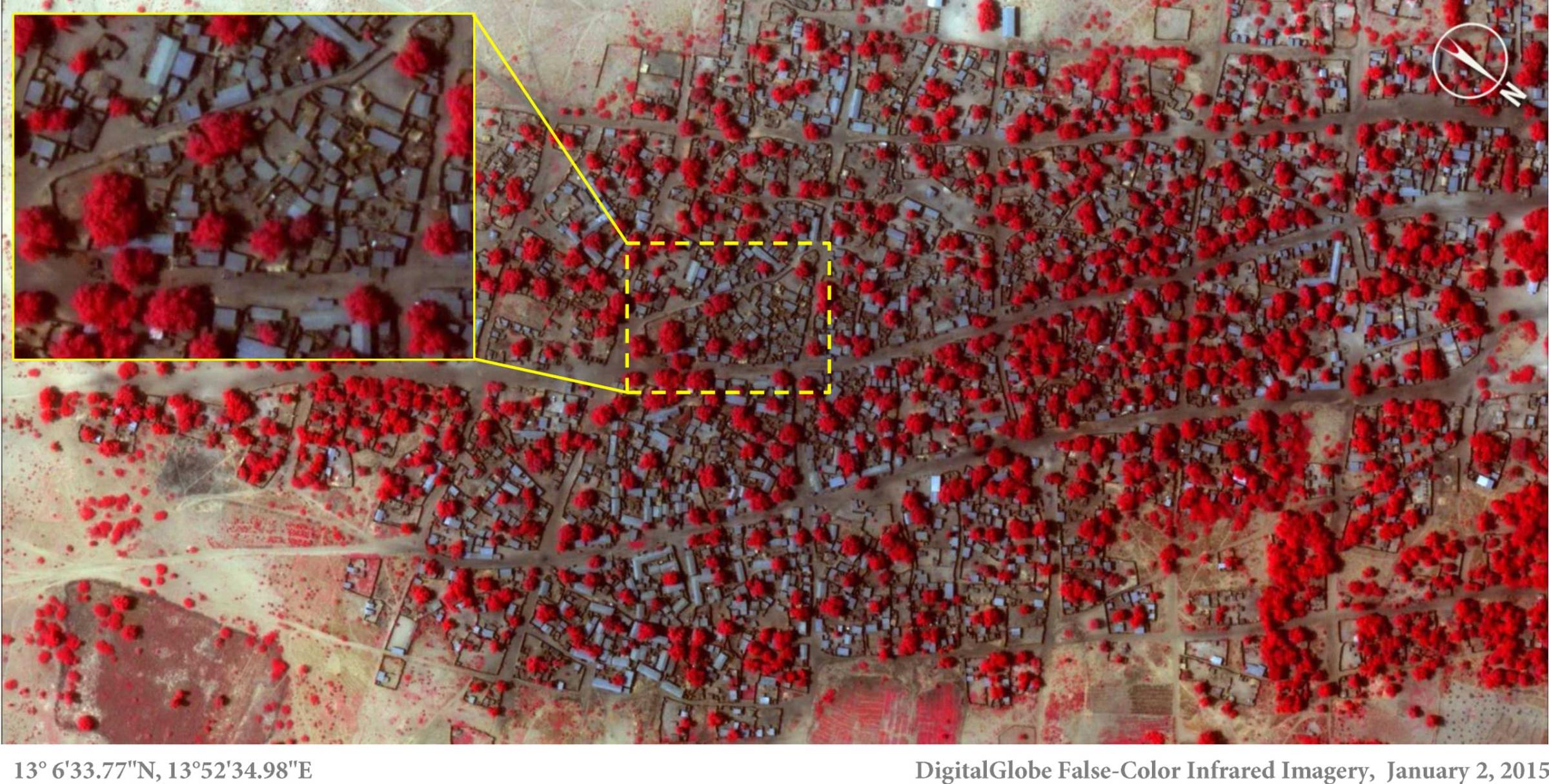
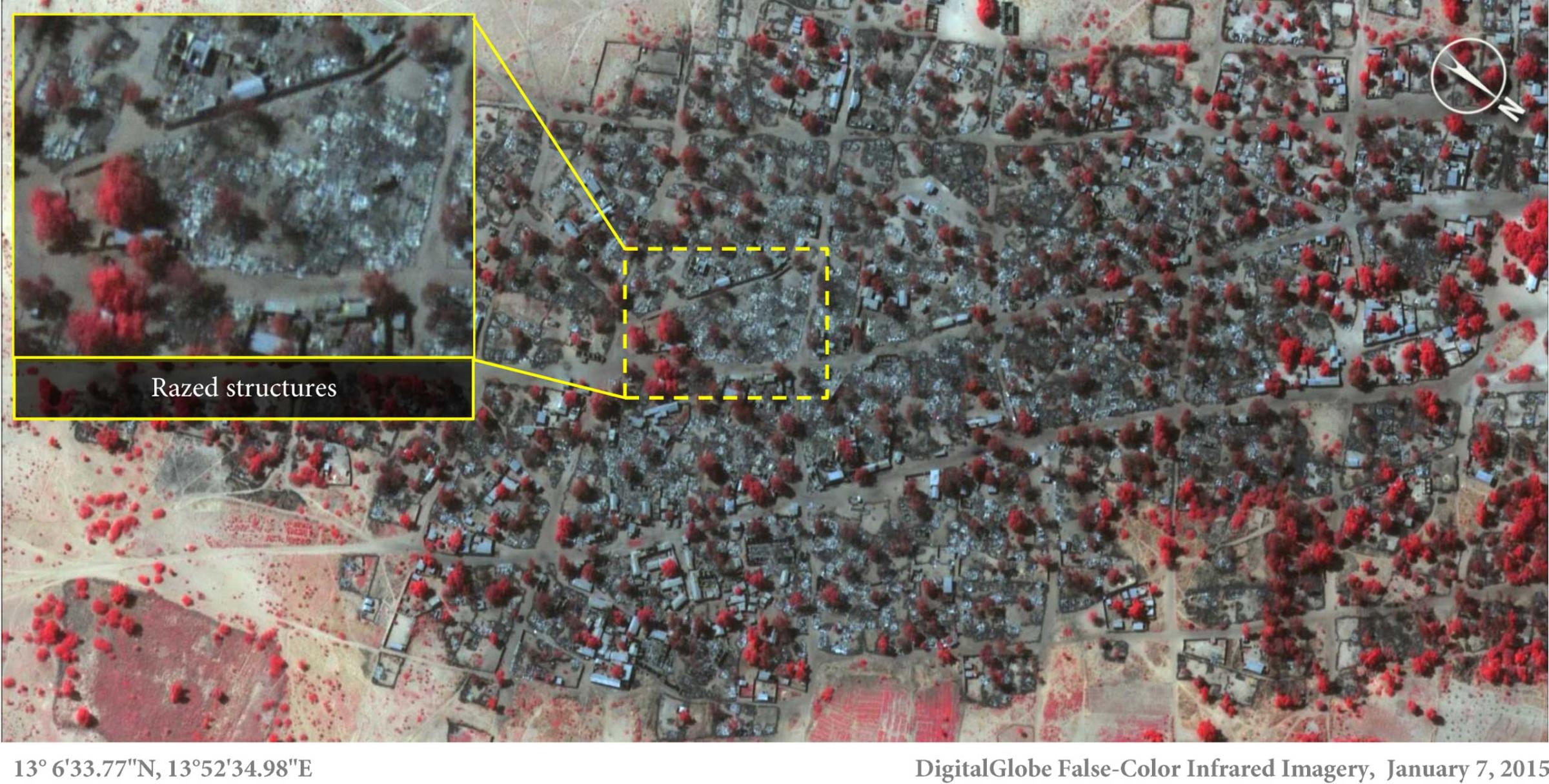
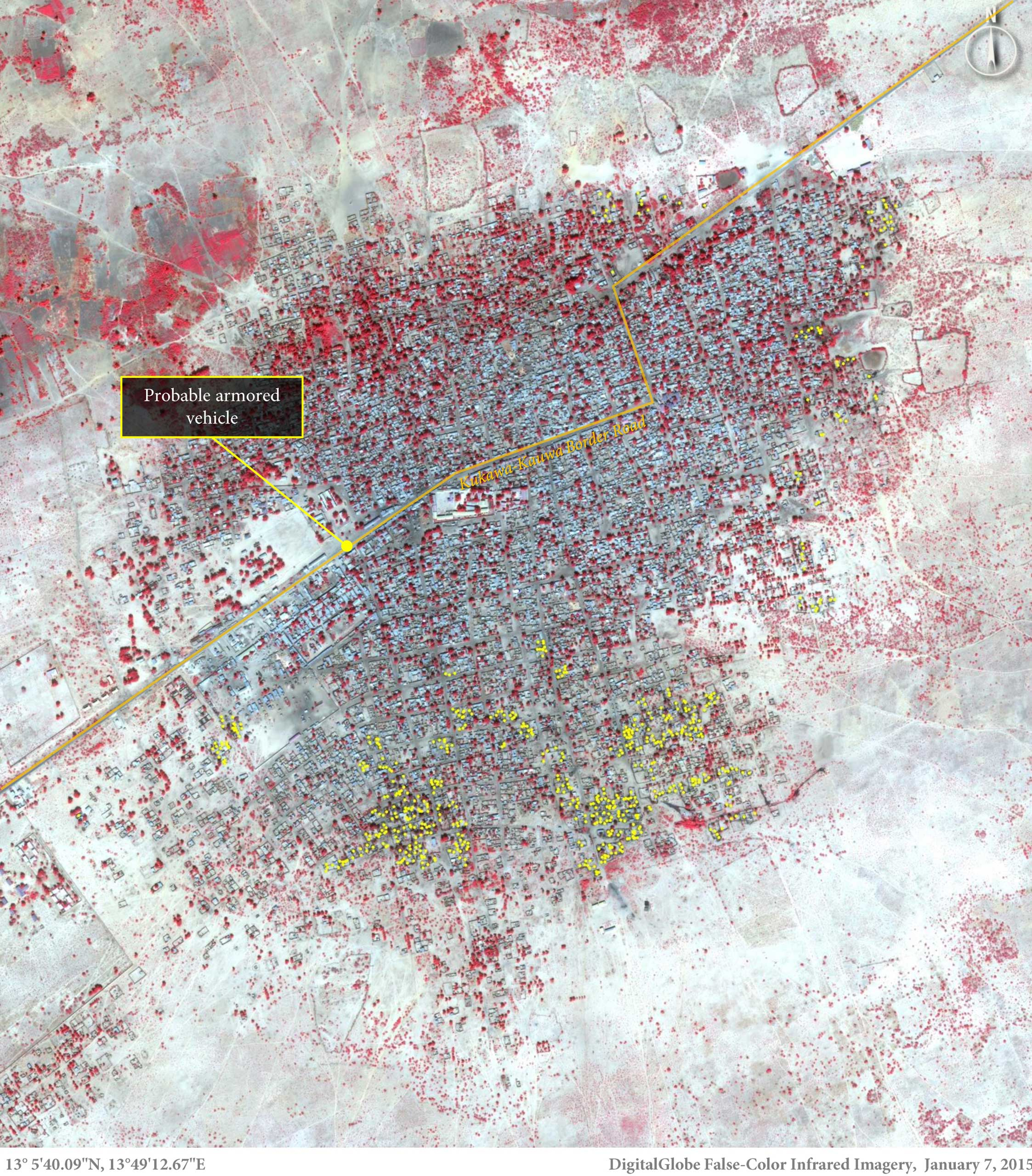
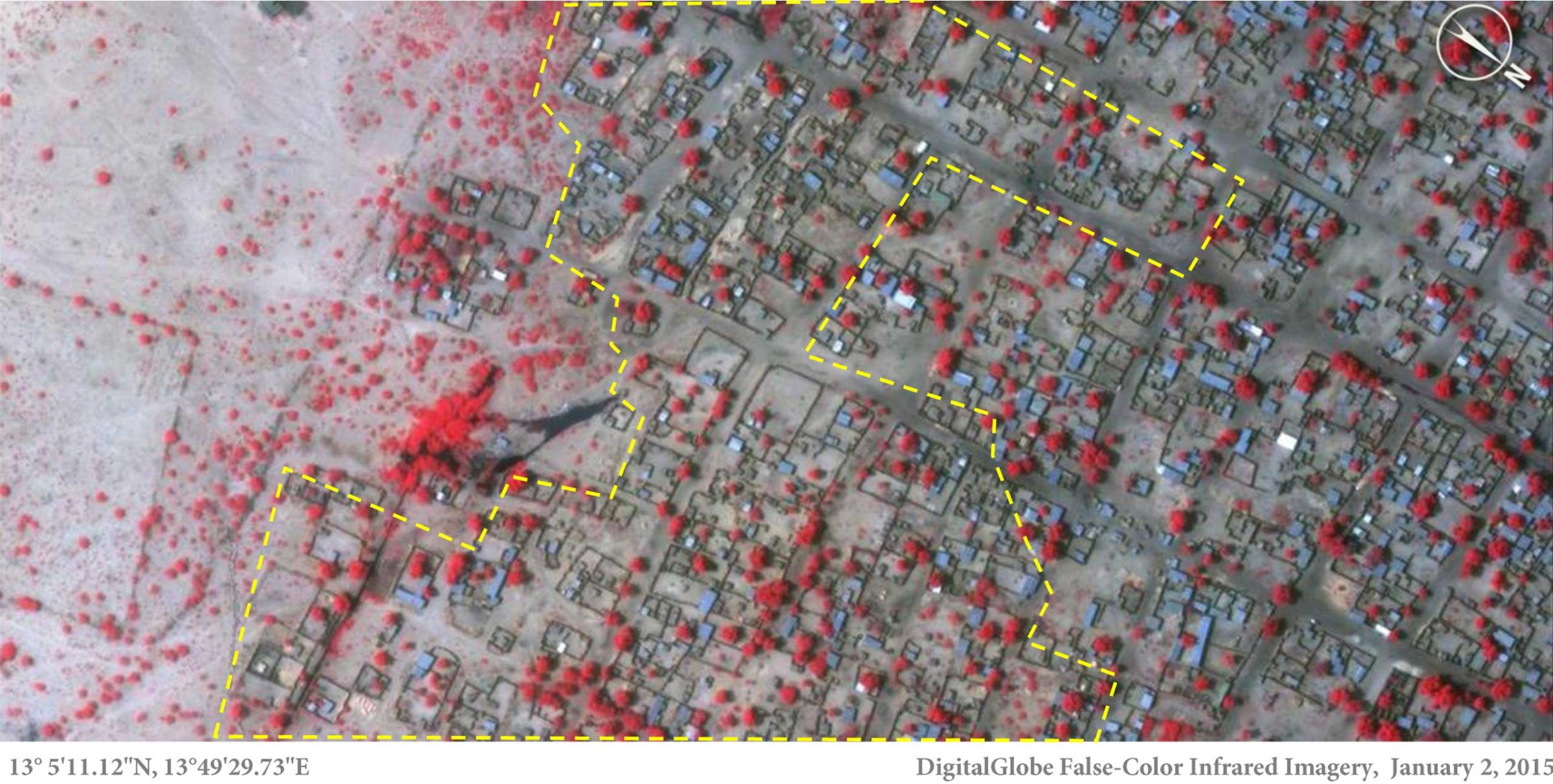
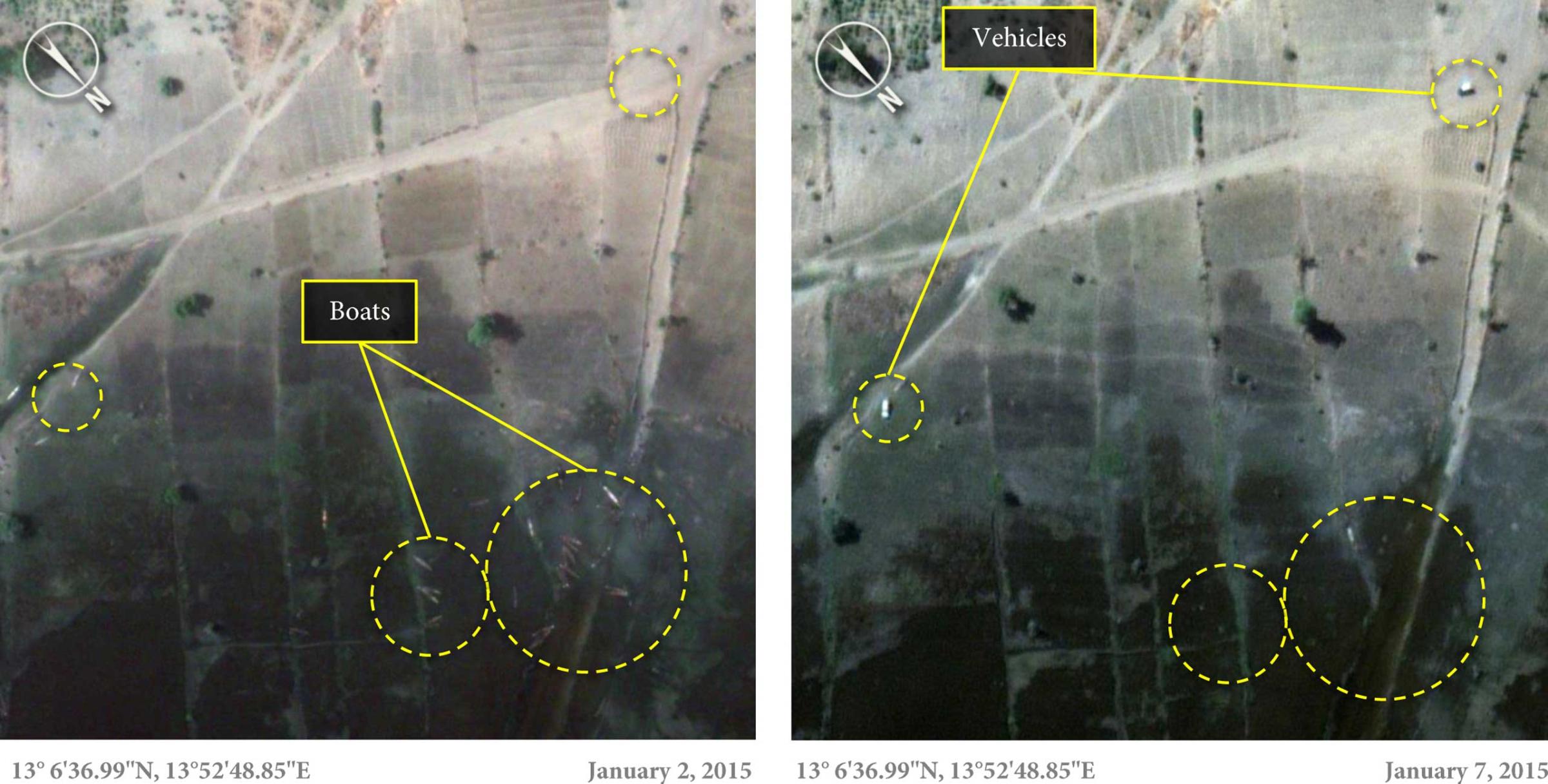
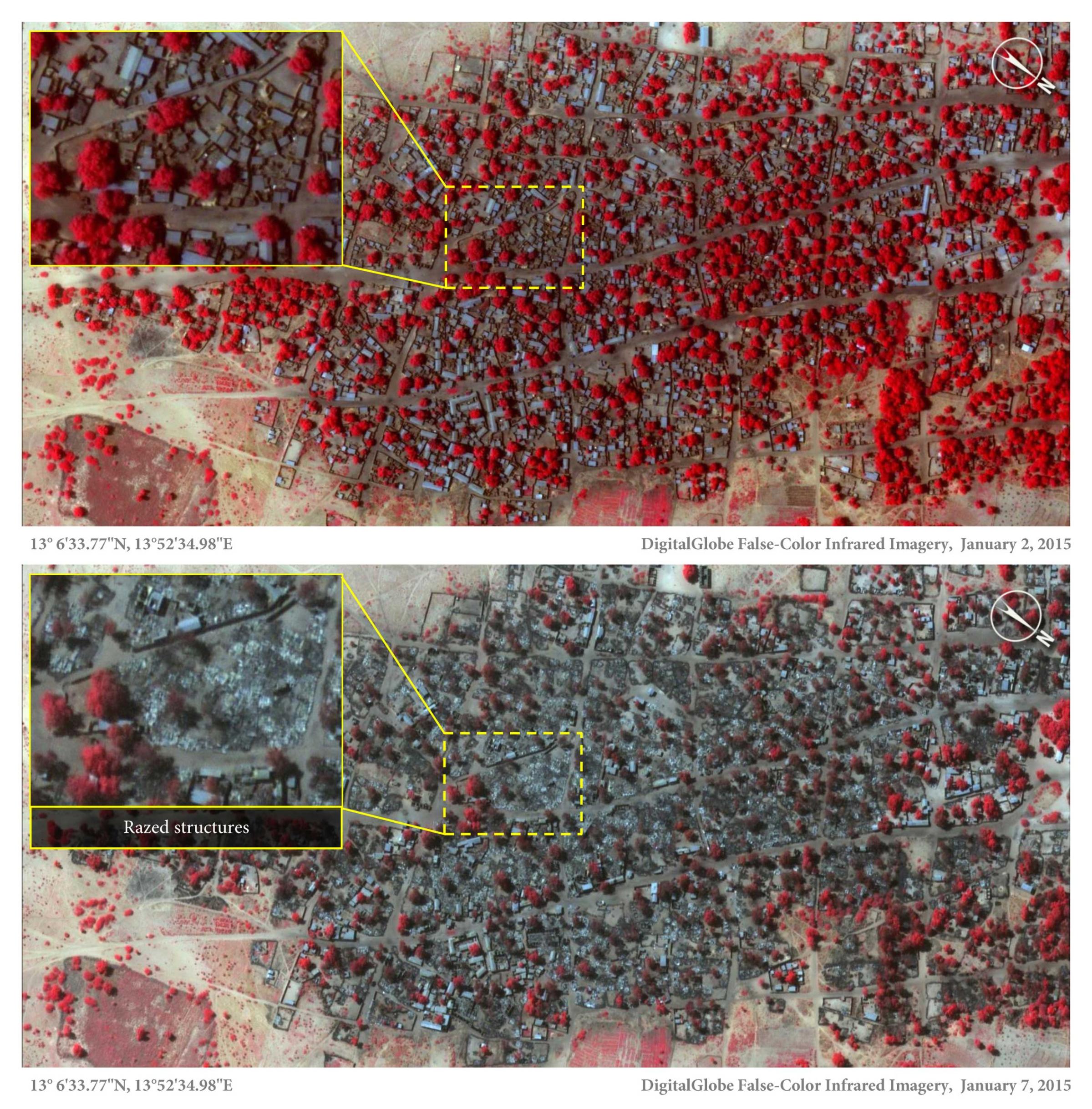
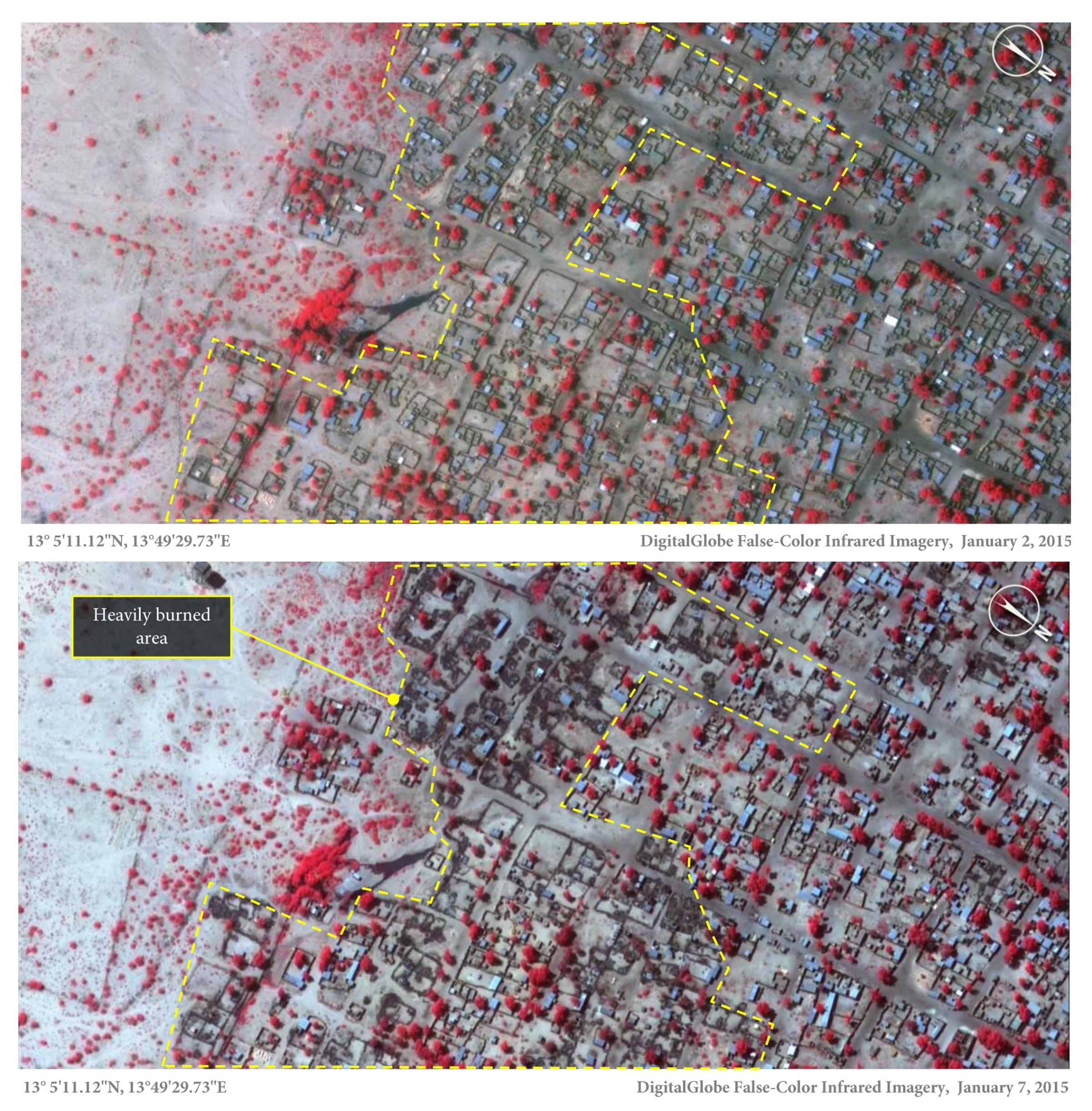
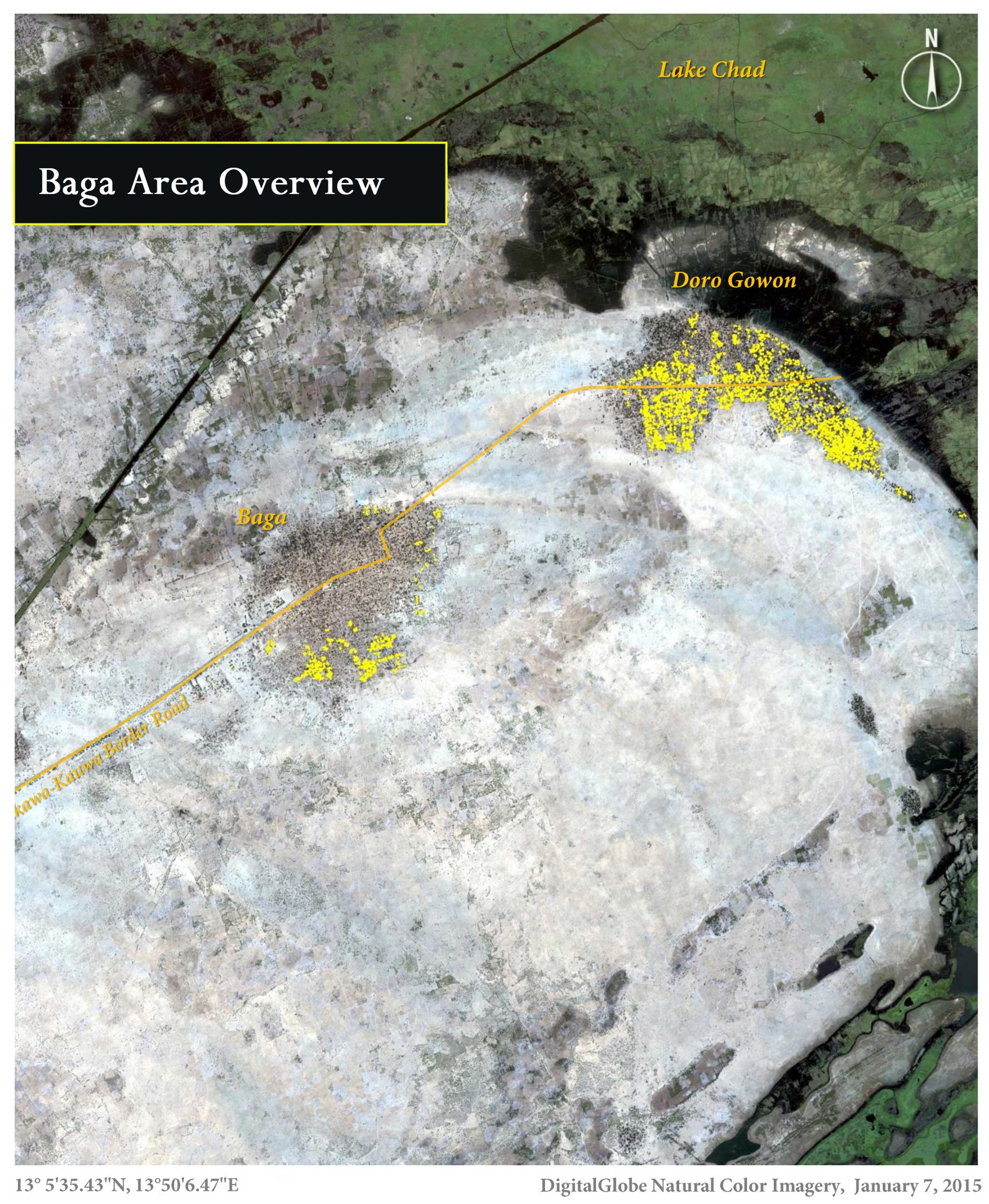
A bigger issue is fraud, says former U.S. Ambassador to Nigeria John Campbell, who now runs the Nigeria Security Tracker for the Council on Foreign Relations. Ammunition and arms are budgeted and paid for, but they don’t always reach the front lines, either because they are diverted to the black market, or because the money actually went into a procurer’s pocket. Disgruntled soldiers recently spoke to CNN, describing how they are sent out to fight militants armed with RPGs while they only have dozens of bullets each. The soldiers complained that they had to cover medical expenses for wounds received in battle, and that the spouses of dead soldiers were only granted a minimal stipend. “Nigeria’s annual military budget is somewhere between five and six billion dollars,” says Campbell. “Yet we have credible reports of soldiers being sent into combat with no bullets. The army is plagued by corruption, incompetence and bad morale.”
Military spokesman Maj. Gen Chris Olukolade argues that accounts of insufficient arms and ammunition are an exaggeration. Concern for civilian casualties, he says, has limited the effectiveness of soldiers in an asymmetric battle where the militants routinely take human shields. Nigerians don’t appreciate the costs of war, he says, so it is easy to blame the military’s failures on corruption when there are other factors at play. As is often the case, there is no firm evidence of graft, but Pham notes that there is enough anecdotal evidence to make a case. He cites Nigeria’s purchase of Israeli-made surveillance drones a few years ago. The drones were paid for and delivered, but despite budget allocations for their maintenance and upkeep, the drones were inoperable last spring, when they could have been used to locate the missing Chibok schoolgirls. Instead U.S. and British drones had to be flown in to do reconnaissance. It may not be a smoking gun, says Pham, but it’s enough to start asking hard questions.
As Olukolade inadvertently points out, Nigeria’s armed forces aren’t particularly well trained in counter-insurgency. They are a conventional army faced with an unconventional force that cares little for collateral damage. Nigeria’s army has a bad record of human rights abuses as well, according to Human Rights Watch. Unlike the militants they are fighting, they have to at least make an effort to do the right thing, says Olukolade in a wrong-footed attempt to explain the military’s limitations. “We are aware we are being watched, and are accountable, and that has affected the speed, the kind of swift actions we want to take against [Boko Haram]. We are constantly being put under check, and that has put a check on how far we can go in fighting back.”
Pham, who has worked in West Africa for over a decade, agrees that the Nigerian military’s training is not adequate for the job at hand. The resource-starved, post-dictatorship army often found that the best outlet for attention was U.N. peacekeeping deployments. As a result, he says, officers at Nigerian staff colleges focused more on courses that could get them the coveted U.N. Department of Peacekeeping certification, rather than on tactical and strategic decision-making. “They are trained to think like peace keeping bureaucrats,” says Pham. “So when you throw someone trained in peacekeeping into a war-fighting situation, they are way out of their depths.”
That has been made abundantly clear in the case of Boko Haram, which has continued to make advances in the region even as U.S. officials estimate that its total size is between 4,000 and 6,000 fighters. The group’s recent expansion into Niger and Cameroon has regional leaders up in arms, and ready to fight. Pham says that the extra 8,700 African Union troops will make a good hammer to the Nigerian military’s anvil, but whether or not they will prove successful by March 28, is unclear.
Boko Haram leader Abubakar Shekau, no stranger to outsize pronouncements himself, scoffs at the new military alliance. “Amass all your weapons and face us,” he taunted in a 28-minute speech in Arabic broadcast on YouTube. “You send 7000 troops? Why don’t you send seven million? By Allah, it is small. We can seize them one by one.”
More Must-Reads from TIME
- Cybersecurity Experts Are Sounding the Alarm on DOGE
- Meet the 2025 Women of the Year
- The Harsh Truth About Disability Inclusion
- Why Do More Young Adults Have Cancer?
- Colman Domingo Leads With Radical Love
- How to Get Better at Doing Things Alone
- Michelle Zauner Stares Down the Darkness
Contact us at letters@time.com